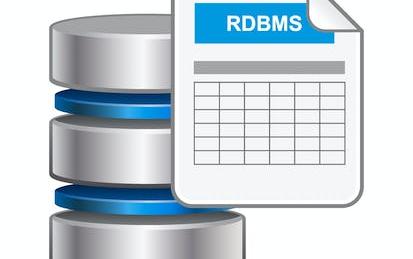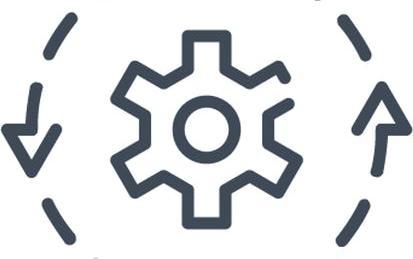

Our Courses

Excel Basics for Data Analysis
Spreadsheet tools like Excel are an essential tool for working with data - whether for data analytics, business, marketing, or research. This course is designed to give you a basic working knowledge of Excel and how to use it for analyzing data. This course is suitable for those who are interested in pursuing a career in data analysis or data science, as well as anyone looking to use Excel for data analysis in their own domain.
-
Course by

-
 Self Paced
Self Paced
-
 12 hours
12 hours
-
 English
English

Introduction to Big Data with Spark and Hadoop
This self-paced IBM course will teach you all about big data! You will become familiar with the characteristics of big data and its application in big data analytics. You will also gain hands-on experience with big data processing tools like Apache Hadoop and Apache Spark. Bernard Marr defines big data as the digital trace that we are generating in this digital era. You will start the course by understanding what big data is and exploring how insights from big data can be harnessed for a variety of use cases.
-
Course by

-
 Self Paced
Self Paced
-
 24 hours
24 hours
-
 English
English

Supply Chain Analytics Essentials
Welcome to Supply Chain Analytics - an exciting area that is in high demand! In this introductory course to Supply Chain Analytics, I will take you on a journey to this fascinating area that applies data analytics to diagnose and solve problems in supply chain management. You will learn real life examples on how data analytics can generate a significant financial and economic impact in various domains of a supply chain, from selling, to logistics, production and sourcing. You will learn job market outlook, requirement and preparation.
-
Course by

-
 Self Paced
Self Paced
-
 10 hours
10 hours
-
 English
English

Data Visualization and Dashboards with Excel and Cognos
Learn how to create data visualizations and dashboards using spreadsheets and analytics tools. This course covers some of the first steps for telling a compelling story with your data using various types of charts and graphs. You'll learn the basics of visualizing data with Excel and IBM Cognos Analytics without having to write any code. You'll start by creating simple charts in Excel such as line, pie and bar charts. You will then create more advanced visualizations with Treemaps, Scatter Charts, Histograms, Filled Map Charts, and Sparklines.
-
Course by

-
 Self Paced
Self Paced
-
 24 hours
24 hours
-
 English
English

Introduction to Relational Databases (RDBMS)
Are you ready to dive into the world of data engineering? In this beginner level course, you will gain a solid understanding of how data is stored, processed, and accessed in relational databases (RDBMSes). You will work with different types of databases that are appropriate for various data processing requirements. You will begin this course by being introduced to relational database concepts, as well as several industry standard relational databases, including IBM DB2, MySQL, and PostgreSQL.
-
Course by

-
 Self Paced
Self Paced
-
 19 hours
19 hours
-
 English
English

The Social and Technical Context of Health Informatics
Improving health and healthcare institutions requires understanding of data and creation of interventions at the many levels at which health IT interact and affect the institution. These levels range from the external “world” in which the institution operates down to the specific technologies. Data scientists find that, when they aim at implementing their models in practice, it is the “socio” components that are both novel to them and mission critical to success.
-
Course by

-
 Self Paced
Self Paced
-
 9 hours
9 hours
-
 English
English

Smart Analytics, Machine Learning, and AI on Google Cloud
Incorporating machine learning into data pipelines increases the ability to extract insights from data. This course covers ways machine learning can be included in data pipelines on Google Cloud. For little to no customization, this course covers AutoML. For more tailored machine learning capabilities, this course introduces Notebooks and BigQuery machine learning (BigQuery ML). Also, this course covers how to productionalize machine learning solutions by using Vertex AI.
-
Course by

-
 Self Paced
Self Paced
-
 7 hours
7 hours
-
 English
English

Foundations: Data, Data, Everywhere
This is the first course in the Google Data Analytics Certificate. Organizations of all kinds need data analysts to help them improve their processes, identify opportunities and trends, launch new products, and make thoughtful decisions. In this course, you’ll be introduced to the world of data analytics through hands-on curriculum developed by Google. The material shared covers plenty of key data analytics topics, and it’s designed to give you an overview of what’s to come in the Google Data Analytics Certificate.
-
Course by

-
 Self Paced
Self Paced
-
 22 hours
22 hours
-
 English
English

Marketing Analytics Foundation
This course lays the foundation of marketing analytics.
-
Course by

-
 Self Paced
Self Paced
-
 12 hours
12 hours
-
 English
English

From Likes to Leads: Interact with Customers Online
From Likes to Leads: Interact with Customers Online is the third of seven courses in the Google Digital Marketing & E-commerce Certificate. This course will help you develop social media marketing strategies. Social media is a key digital marketing channel for many businesses because of the large number of people who use social platforms to socialize, interact with businesses, and share content. No digital marketing strategy is complete without an online brand presence where customers can engage with a brand.
-
Course by

-
 Self Paced
Self Paced
-
 27 hours
27 hours
-
 English
English

Data Visualization in Excel
In an age now driven by "big data", we need to cut through the noise and present key information in a way that can be quickly consumed and acted upon making data visualization an increasingly important skill. Visualizations need to not only present data in an easy to understand and attractive way, but they must also provide context for the data, tell a story, achieving that fine balance between form and function. Excel has many rivals in this space, but it is still an excellent choice, particularly if it's where your data resides.
-
Course by

-
 Self Paced
Self Paced
-
 18 hours
18 hours
-
 English
English

Data Analysis with R Programming
This course is the seventh course in the Google Data Analytics Certificate. In this course, you’ll learn about the programming language known as R. You’ll find out how to use RStudio, the environment that allows you to work with R, and the software applications and tools that are unique to R, such as R packages. You’ll discover how R lets you clean, organize, analyze, visualize, and report data in new and more powerful ways.
-
Course by

-
 Self Paced
Self Paced
-
 37 hours
37 hours
-
 English
English

Building Resilient Streaming Analytics Systems on Google Cloud
Processing streaming data is becoming increasingly popular as streaming enables businesses to get real-time metrics on business operations. This course covers how to build streaming data pipelines on Google Cloud. Pub/Sub is described for handling incoming streaming data. The course also covers how to apply aggregations and transformations to streaming data using Dataflow, and how to store processed records to BigQuery or Bigtable for analysis. Learners get hands-on experience building streaming data pipeline components on Google Cloud by using Google Cloud Skills Boost.
-
Course by

-
 Self Paced
Self Paced
-
 8 hours
8 hours
-
 English
English

Introduction to Cloud Computing
Start your cloud computing journey with this self-paced introductory course! Whether you need general cloud computing knowledge for school or business, or you are considering a career change, this beginner-friendly course is right for you. In this course you’ll learn about essential characteristics of cloud computing and emerging technologies supported by cloud. You’ll explore cloud service models, including Infrastructure as a Service (IaaS), Platform as a Service (PaaS), Software as a Service (SaaS), and Public, Private, and Hybrid deployment models.
-
Course by

-
 Self Paced
Self Paced
-
 25 hours
25 hours
-
 English
English

Getting Started With Application Development
In this course, application developers learn how to design and develop cloud-native applications that seamlessly integrate managed services from Google Cloud. Through a combination of presentations, demos, and hands-on labs, participants learn how to apply best practices for application development and use the appropriate Google Cloud storage services for object storage, relational data, caching, and analytics.
-
Course by

-
 Self Paced
Self Paced
-
 13 hours
13 hours
-
 English
English

Basic Data Processing and Visualization
This is the first course in the four-course specialization Python Data Products for Predictive Analytics, introducing the basics of reading and manipulating datasets in Python. In this course, you will learn what a data product is and go through several Python libraries to perform data retrieval, processing, and visualization. This course will introduce you to the field of data science and prepare you for the next three courses in the Specialization: Design Thinking and Predictive Analytics for Data Products, Meaningful Predictive Modeling, and Deploying Machine Learning Models.
-
Course by

-
 Self Paced
Self Paced
-
 11 hours
11 hours
-
 English
English

Process Data from Dirty to Clean
This is the fourth course in the Google Data Analytics Certificate. In this course, you’ll continue to build your understanding of data analytics and the concepts and tools that data analysts use in their work. You’ll learn how to check and clean your data using spreadsheets and SQL, as well as how to verify and report your data cleaning results.
-
Course by

-
 Self Paced
Self Paced
-
 24 hours
24 hours
-
 English
English

Business Intelligence Concepts, Tools, and Applications
This is the fourth course in the Data Warehouse for Business Intelligence specialization. Ideally, the courses should be taken in sequence. Effectively and efficiently mining data is the very center of any modern business’s competitive strategy, and a data warehouse is a core component of this data mining. The ability to quickly look back at early trends and have the accurate data – properly formatted – is essential to good decision making. By enabling this historical overview, a data warehouse allows decision makers to learn from past trends and challenges.
-
Course by

-
 Self Paced
Self Paced
-
 22 hours
22 hours
-
 English
English

Foundations of strategic business analytics
Who is this course for? This course is designed for students, business analysts, and data scientists who want to apply statistical knowledge and techniques to business contexts. For example, it may be suited to experienced statisticians, analysts, engineers who want to move more into a business role.
-
Course by

-
 Self Paced
Self Paced
-
 8 hours
8 hours
-
 English
English

Excel Fundamentals for Data Analysis
As data becomes the modern currency, so the ability to analyse the data quickly and accurately has become of paramount importance. Excel with its extraordinarily broad range of features and capabilities is one of the most widely used programs for doing this. In the first course of our Excel Skills for Data Analysis and Visualization Specialization, you will learn the fundamentals of Excel for data analysis.
-
Course by

-
 Self Paced
Self Paced
-
 15 hours
15 hours
-
 English
English

Business Metrics for Data-Driven Companies
In this course, you will learn best practices for how to use data analytics to make any company more competitive and more profitable. You will be able to recognize the most critical business metrics and distinguish them from mere data. You’ll get a clear picture of the vital but different roles business analysts, business data analysts, and data scientists each play in various types of companies.
-
Course by

-
 Self Paced
Self Paced
-
 8 hours
8 hours
-
 English
English

Fundamentals of Visualization with Tableau
In this first course of this specialization, you will discover what data visualization is, and how we can use it to better see and understand data. Using Tableau, we’ll examine the fundamental concepts of data visualization and explore the Tableau interface, identifying and applying the various tools Tableau has to offer. By the end of the course you will be able to prepare and import data into Tableau and explain the relationship between data analytics and data visualization.
-
Course by

-
 Self Paced
Self Paced
-
 11 hours
11 hours
-
 English
English

Cloud Computing Applications, Part 2: Big Data and Applications in the Cloud
Welcome to the Cloud Computing Applications course, the second part of a two-course series designed to give you a comprehensive view on the world of Cloud Computing and Big Data! In this second course we continue Cloud Computing Applications by exploring how the Cloud opens up data analytics of huge volumes of data that are static or streamed at high velocity and represent an enormous variety of information. Cloud applications and data analytics represent a disruptive change in the ways that society is informed by, and uses information.
-
Course by

-
 Self Paced
Self Paced
-
 20 hours
20 hours
-
 English
English

Marketing Analytics
Organizations large and small are inundated with data about consumer choices. But that wealth of information does not always translate into better decisions. Knowing how to interpret data is the challenge -- and marketers in particular are increasingly expected to use analytics to inform and justify their decisions. Marketing analytics enables marketers to measure, manage and analyze marketing performance to maximize its effectiveness and optimize return on investment (ROI).
-
Course by

-
 16 hours
16 hours
-
 English
English
Increasing Real Estate Management Profits: Harnessing Data Analytics
In this final course you will complete a Capstone Project using data analysis to recommend a method for improving profits for your company, Watershed Property Management, Inc. Watershed is responsible for managing thousands of residential rental properties throughout the United States. Your job is to persuade Watershed’s management team to pursue a new strategy for managing its properties that will increase their profits.
-
Course by

-
 Self Paced
Self Paced
-
 23 hours
23 hours
-
 English
English



